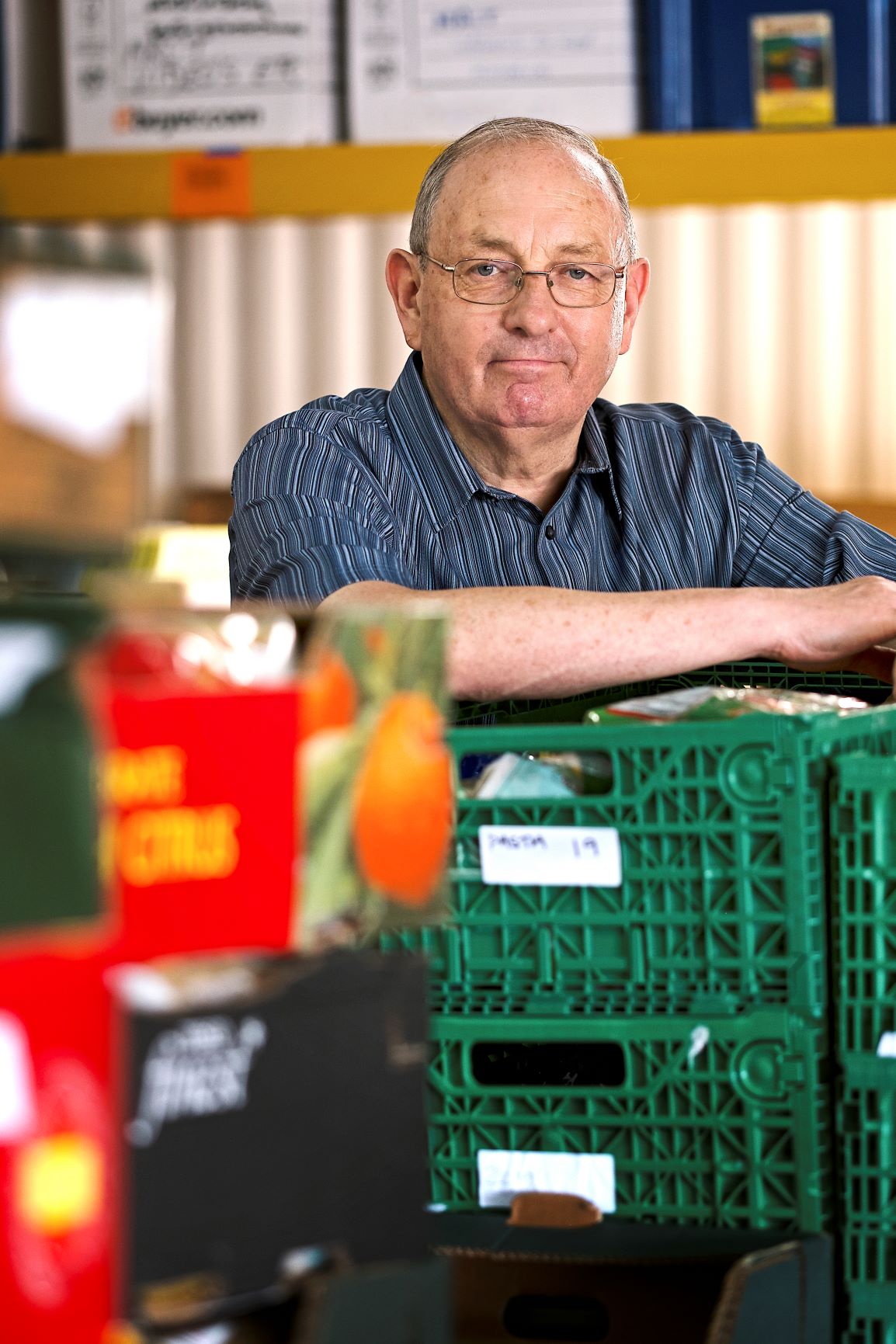 It only took me six years to make the headlines in Harlow, having moved here with my parents in 1957. Unfortunately, my notoriety was due to a duff batch of Argentinian corned beef that was not only contaminated with typhoid, but also had Harlow as its destination. When several slices of the tainted meat made its way into a sandwich that I, as a famished milkman’s assistant, ate one morning, it landed me in hospital quarantine for six weeks while I recovered. It was a big deal in the town, that quickly spread nationwide – making the news headlines.
It only took me six years to make the headlines in Harlow, having moved here with my parents in 1957. Unfortunately, my notoriety was due to a duff batch of Argentinian corned beef that was not only contaminated with typhoid, but also had Harlow as its destination. When several slices of the tainted meat made its way into a sandwich that I, as a famished milkman’s assistant, ate one morning, it landed me in hospital quarantine for six weeks while I recovered. It was a big deal in the town, that quickly spread nationwide – making the news headlines.
Thankfully the remainder of my school years were less eventful. I left with a handful of qualifications, but enough for me to secure a job with an advertising agency in London. For many such a job could be considered perfect. However, after a few years I was keen to try something closer to home. Something I’d already got a taste for in my youth – being a milkman.
'a duff batch of corned beef landed me in hospital!'
Through hard graft I climbed the corporate ladder from milkman to supervisor, senior supervisor, assistant manager, manager, then regional manager for the eastern counties – reporting directly to a director within Unigate Dairies. Then I got offered my big break: manager at Wood Lane Depot in London – the biggest in the country. I’d been told, in no uncertain terms, that if I could rectify issues that plagued the depot the world was my oyster. I was hooked in, but it wasn’t so much the money that drove me – it was more the challenge of turning the hostility of my arrival at a faltering depot into harmony and efficiency when my job was done. By this time I was already a workaholic. For me, travelling the country, working long hours and being frequently away from home, which was still in Harlow, had become the norm. Yet, despite my wife’s objections (she knew full well this would step things up a notch), I still took the promotion.
'I'm often so uplifted by the generosity of what people in Harlow do for others'
I was successful in reversing Wood Lane Depot’s fortunes – however, it was at the expense of my marriage. I accept all responsibility. I don’t blame my ex-wife at all – I was blinkered to anything but work. To be honest, it was the wake-up call I needed. Therefore, despite the promised clear path of promotion ahead of me, I took a dramatic life change. I handed in my resignation and the keys to my company car. For all intents and purposes I was back to square one – but never once have I looked back.
At the heart of my personal reinvention was my renewed Christian faith and a desire to do more in the community. So, despite having no prior experience, I started working at a residential care home in Harlow for those with learning disabilities. The job was immensely rewarding, yet at the same time frustrating. Frustrating because those I cared for had so much to give, but weren’t often given the opportunities to do so. In light of this, me and my second wife formed the Christian-based Michael Roberts Charitable Trust in 1997, the name honouring a gentleman who, despite having Down syndrome, gave us so much inspiration. Our ethos is one of providing opportunities for those with disabilities, with the aid of staff and volunteers, so they can show what they can do as opposed to what they can’t – it’s all about releasing that hidden potential.
Our first community-based project in Harlow was the Maybury Centre – an adult drop-in centre for the community managed by myself and a team of adults with various learning disabilities. The Harlow Foodbank was set up in April 2009 and subsequent Bounty Club (sourcing companies’ surplus/end-of-line fresh food) was set up in September 2014. It’s tragic that in this day and age there’s a need for such a thing – but with so many individuals and families living hand-to-mouth, situations often arise. We are loath to discuss an individual’s reasons for using our services, especially while they’re at a rather fragile point in life. All we are concerned about is that relevant support agencies have validated their claim so we can step in and help them. To date the Harlow Foodbank has helped over 21,000 people. To fulfil such numbers we require yearly donations of around fifty-six tonnes of nonperishable food and toiletries, with, on average, an additional ten tonnes of fresh food by way of the Bounty Club.
With a high percentage of children in Harlow coming from low-income families, it is prudent to supply food to schools so that teaching staff are able to provide breakfast clubs. Not only are children then nutritionally equipped to start the day, but it also helps teach them about the fundamental benefits of a strong community. It’s a great investment, as I’m sure it will help make them strong citizens of the future.
At times we are confronted by a small minority of individuals who question our motives, querying – sometimes aggressively – why we collect food for those who they wrongly assume are just scroungers or have no right to be here in the first place. I try to reason with them and provide background stories to back up our motives – sadly, it makes little difference. That said, 99.9 per cent of those in Harlow and the surrounding area are wonderful. During the last recession I was truly concerned that we would struggle to match the food amounts needed. But it was quite the opposite. Without fail people came in with donations, some openly explaining that they’d once been in a position of needing to use a foodbank and therefore wanted to help others. I’m often so uplifted by the generosity of what people in Harlow do for others.
Even though we’re a Christian-based charity, it’s not incumbent on those who volunteer or who we assist to follow the same religious faith. We, as do other faith groups we work alongside, respect others’ religious beliefs, or people with no beliefs – we are all part of a community. A community that cares, which we can help to greater effect when we all work as a team.
